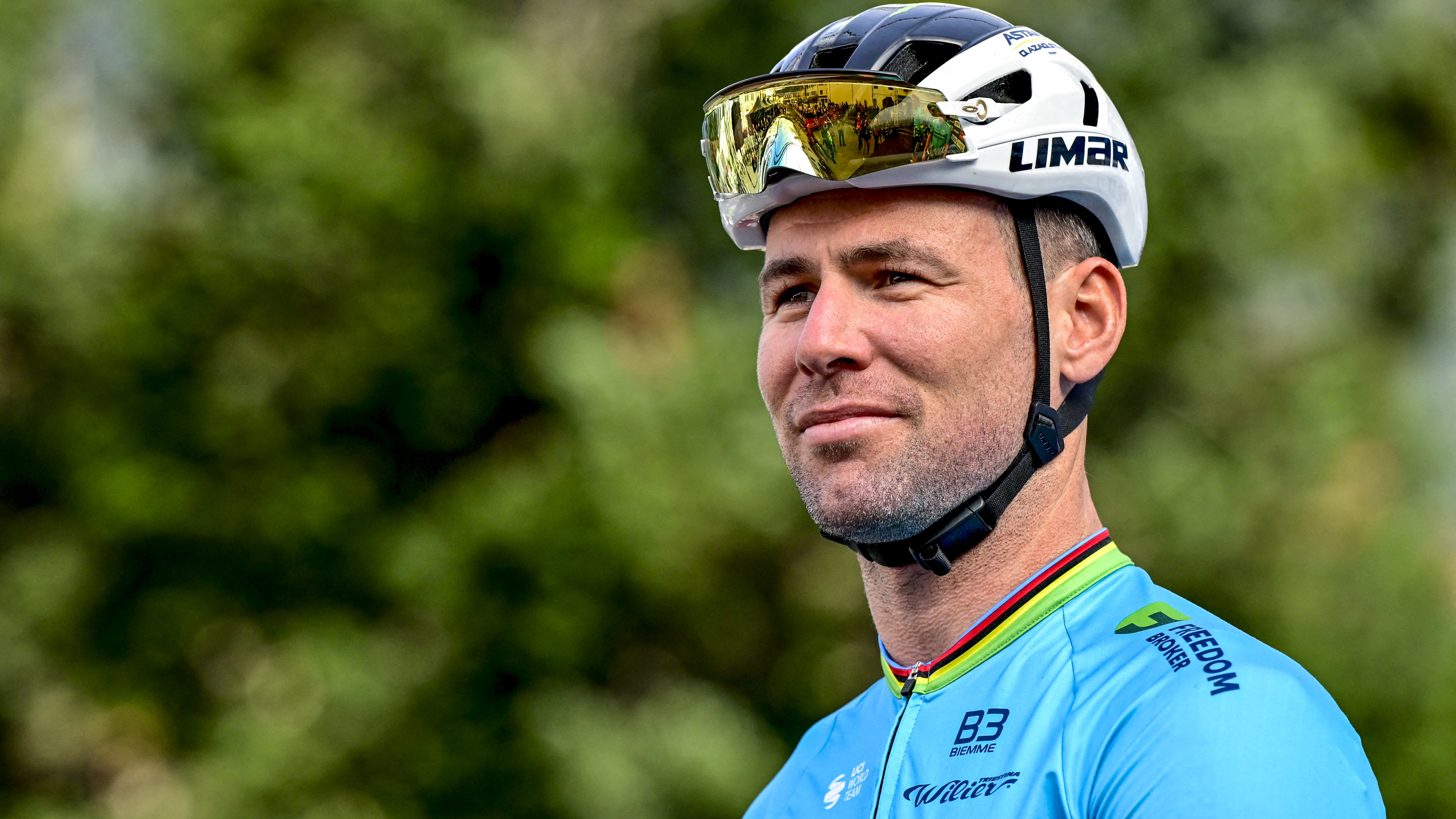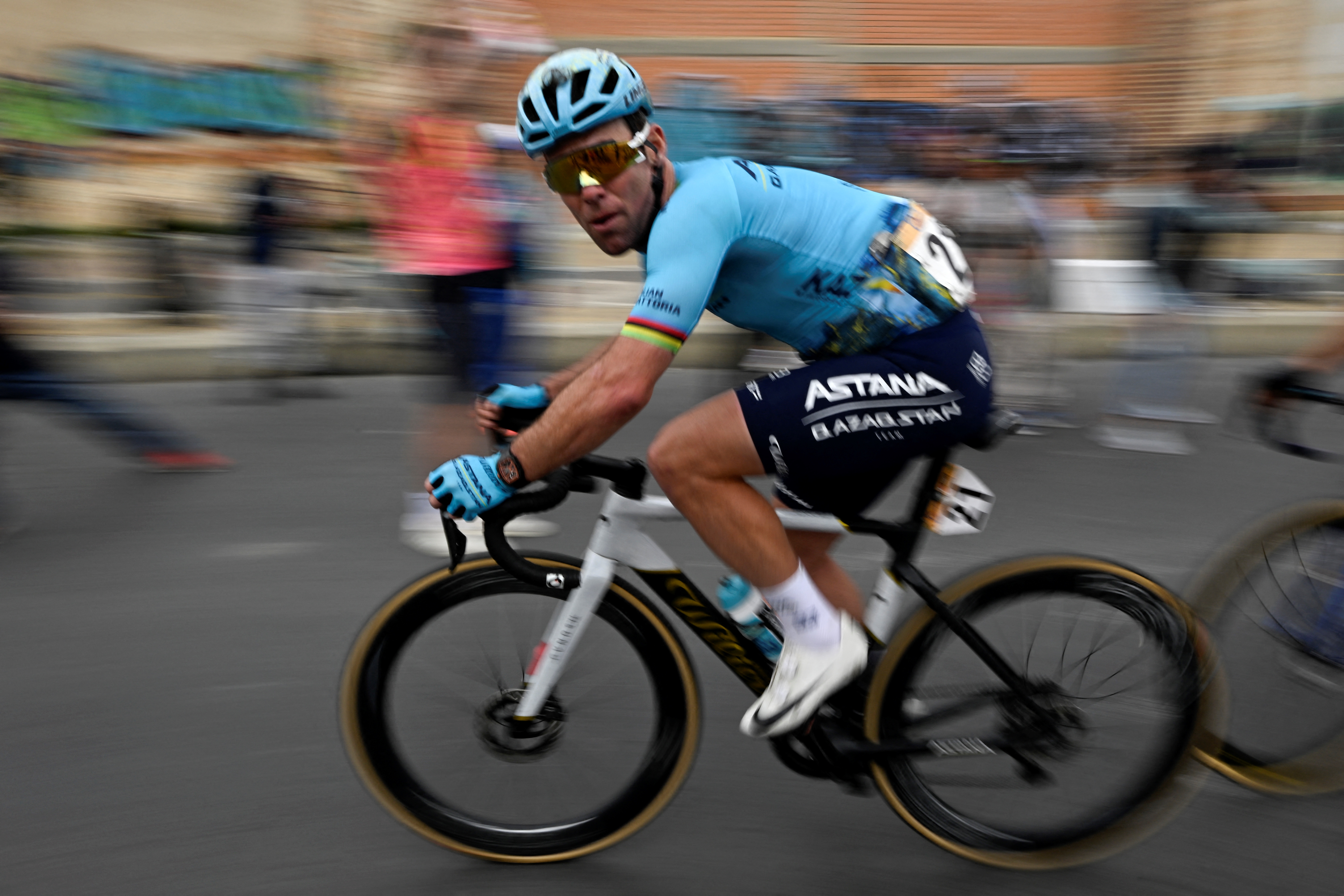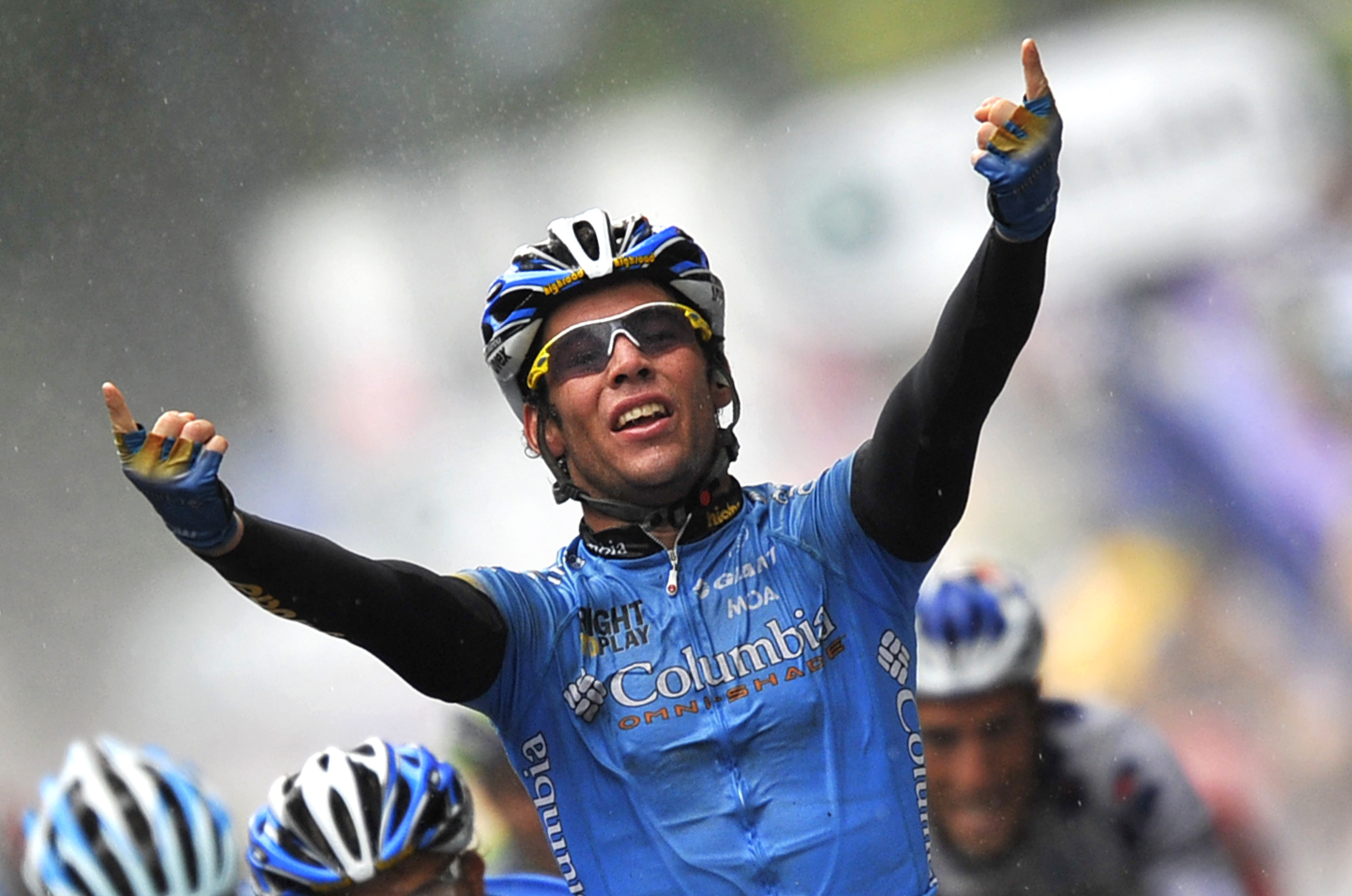
When Mark Cavendish leaves Piazza della Signoria, Florence at midday on Saturday, he’ll be starting the fifteenth Tour de France of his long and spectacular career. If all goes well, twenty-one stages later he will be in Place Masséna, Nice atop a Wilier SLR time trial bike and completing his final Tour stage.
During the three weeks of racing on the roads of four different countries – Italy, San Marino, Monaco and France – he has eight chances to win a stage. Eight days when the organisers ASO have deemed the profile to be flat and suited to sprinting, Mark Cavendish’s trade at this race since 2007.
If he is fastest on just one of those sprint stages, he’ll be the sole record holder of Tour stage wins instead of sharing that achievement with a certain Eddy Merckx. The greatest cyclist of all time surpassed by the greatest sprinter the Tour has ever witnessed.
Merckx will probably be miffed but he won’t be surprised. After Cavendish’s 18 years as a professional, Merckx and everyone else who follows cycling knows that the Manxman performs his best when the racing is of the highest level. At the age of 39, if he’s involved in a sprint finish, his experience, awareness and speed still make him a threat to his rivals.
Even when he isn’t part of the battle, I always check where he came in that day, and I doubt I’m alone in doing so. Such is the interest in Mark Cavendish that there are as many headlines when he loses as when he wins. Publicity of some sort is guaranteed.

To put things into perspective, Wikipedia is for once a good indication of where a sportsperson ranks in the hierarchy of achievements. Most fairly successful athletes get a one-page listing of their feats. The greats, the ones who change history and push the records higher, usually have two. Mark Cavendish has two pages, and they are long pages.
From the first season with T-Mobile through to the present day, the scale of his palmarès is extensive, exhausting even. National and World track titles, an Olympic medal in Rio, Six Day wins in the winter, and that’s before you even get to the road.
He’s in the hallowed club of stage winners in each Grand Tour, with 54 victories across all three. Points competition in each of the Grand Tours, too, including twice at the Tour, done ten years apart. National champion twice, world champion, Milan-San Remo winner, four consecutive victories on the Champs Elysées… The list is mind-boggling. His 164 wins on the road are only bettered by Merckx. Het Nieuwsblad voted him Flandrien of the Year twice and he’s been BBC Sports Personality of the year, which is a big deal as that is almost always given to a footballer or a golfer.
Loved by many, admired and respected by all. That could be the greatest compliment, but for me it is Mark Cavendish’s character that stands out. In his early days, there was the brash attitude, arrogance and ambition, the kid who would bite the head off journalists or interviewers. The low crouching position, so aggressive and effective when he was sprinting, only added to the ‘don’t mess with me’ attitude and that often came out in the moments after a victory when he would be mobbed by photographers and followers.
He was often accused of by his rivals of taking no prisoners in the rough and tumble of a sprint finale, and the hyper-activity that sprinters need to survive those clashes sometimes reappeared when the pedalling was over and it was time to reflect on how the day had went.

Gradually, however, the boy matured into the man we see today – reflective, and able to explain what went right or wrong without too much anger. His insights have become more intriguing, not only from the amount of information relevant to that day but also in the way he remembers the details from previous years. Not every rider can do that.
Most have a vague idea, but the capacity that Mark Cavendish retains and uses is remarkable. Where drain covers and bumps are that may affect control, which side of the finishing straight has the best surface, when to lead out, when to wait and then pounce – all that info is stored up and waiting to be accessed. You can ask him about a sprint he did a decade ago and he’ll take a moment to think and then you’ll be enthralled by the recollection of who did what, when and why.
His expectations of himself are high and, as for many top riders, those standards are required from those around him. It’s quite telling that there have only been two occasions where his stay in a squad has been limited to one season. A sign that, for whatever reason, the structure there wasn’t working for him. When his ambitions weren’t going to be met then it was time to move on. Sometimes by mutual agreement – at Team Sky, when they decided to put everything on GC victories – and sometimes not.
A difficult period at Bahrain-McLaren during the COVID-19 pandemic of 2020 was almost the end of his career due to the disruptions of the race calendar and the lingering effects of Epstein-Barr virus that he had contracted in 2017 while at Dimension Data. The initial part of the contract with Doug Ryder’s squad produced 4 Tour stage wins and a day in the lead of the 2016 race, his first yellow jersey.
However, the later three seasons went downhill. Pressure from the management, health problems associated with returning to competition before fully recovering from Epstein-Barr, and, to cap it all, a non-selection for the Tour soured the relationship with Ryder completely. The lingering effects of all that meant ill health and clinical depression continued into 2020, which culminated in the infamous scene were Mark was in tears at the end of Gent-Wevelgem, fearing it was his last race as a professional.
What followed next showed the level of respect that Cavendish had earned from Patrick Lefevere during his stint at QuickStep from 2013 to 2016. Belgium is one of the places that loves and cherishes riders, and so the veteran manager saw the value of having Mark Cavendish as part of the squad even if it was only to allow him to retire with dignity.
I always thought that those Quickstep/Belgian years were where Cavendish felt the most appreciated, and Lefevere being the only one willing to take a chance on signing him – or maybe seize the opportunity of signing him – was classy. The reluctance of the other WorldTour teams was poor, even though being ruthless is commonplace in this sport.
The rehabilitation that Cavendish went on to have at the 2021 Tour was spectacular and in every way a tribute to his professionalism and to the support and love of those closest to him. That everyone was pleased he was capable of winning races again was one thing, but to go from there to winning four stages and another green jersey was joyous. Tears flowed and rightly so.
Now he heads into his final lap of France in the colours of Astana Qazaqstan with a strong leadout train and the knowledge that he has done all he can to be in form. All the other fast men know that in the right place, at the right time he’ll be competitive. He still commands their respect.
The fairytale ending of the 35th Tour de France stage victory on the Champs Elysées didn’t quite work out in 2021, but that doesn’t matter. It’s no longer a Merckx record, it’s a Cavendish and Merckx record, which for the little kid who started out racing BMX aged seven on the Isle of Man is already massive.
If Mark Cavendish doesn’t take another Tour stage, then I think he’ll be okay with that - maybe not as much as he would be if he does do it, but I think now, after all that has happened in his professional career and personal life, he can be content. We aren’t going to see another rider achieve what he has for a very long time, if ever.
Mark Cavendish is by far Britain’s greatest bike rider, his combination of talent, hunger and commitment is very, very special. The awards, the recent knighthood for his contributions to cycling and charity are recognition of the influence he has had all over the world and so many people, me included, appreciate the entertainment and inspiration he has given.
This 111th Tour de France will be his last one. ‘Will he or won’t he take the record?’ might seem like the most important thing, but it’s not. This is the opportunity to thank Mark Cavendish at his favourite race for everything he’s achieved, the highs and lows, the joys and the heartaches of what has been a magnificent career.
Thank you for your Cyclingnews subscription. We use our subscription fees to be able to keep producing all our usual great content as well as more premium pieces like this one. Find out more here.







